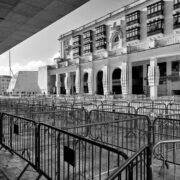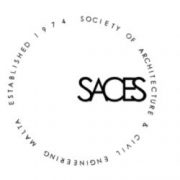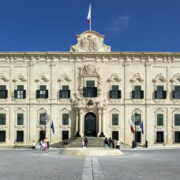PR 34/19 | Democratic expression and public space
The Barcelona Declaration on Public Spaces for Habitat III (2016 – United Nations), of which Malta is a signatory, stresses people’s right to “stake a claim on the city” which implies the need to “respect and protect a number of rights and freedoms, such as the right to freedom of expression and assembly, the right to information, consultation and participation in decision-making processes.”
Politics and public space have an intimate relationship – both deal with public life, the relationships we have with others, how we live and interact with each other. Public spaces are the stage of public life; they are the places where we congregate to celebrate, to protest, to meet, to trade, to seek inspiration and tranquillity. We must ensure that our public spaces sustain our quality of life and our culture, and that they express what our society considers to be important.
Although the Kamra tal-Periti appreciates the need to ensure the security and safety of all citizens, it is disturbed by the grossly impeded use of public space and the wholly disproportionate occupation of Freedom Square.
Renzo Piano’s Parliament Building and the surrounding urban space were designed to promote transparency of the democratic processes. The multiple layers of barriers that are being erected around this building emphasise the gap between the elected and the electorate: a gap which the architectural and urban design sought to eradicate.
The protests taking place in Freedom Square are an expression of public sentiment and should not be unduly restricted.
“When public space is eroded, our civic culture suffers, even our democracy” – Richard Rogers





